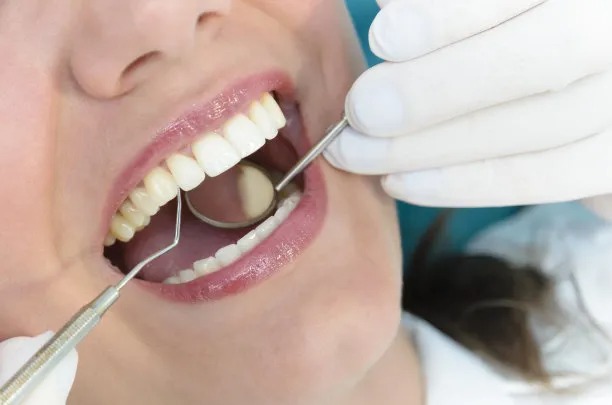Summary: This article provides a comprehensive guide on essential care tips and precautions to consider before and after receiving dental filling treatment. Dental fillings are vital in restoring decayed or damaged teeth, ensuring oral health and functionality. The article emphasizes pre-treatment and post-treatment care, the importance of choosing the right dental material, understanding potential side effects, and maintaining dental hygiene. Each section outlines specific tips that contribute to a successful filling experience and long-term dental well-being. By following these guidelines, patients can facilitate a smoother recovery and minimize complications, enhancing the overall effectiveness of their dental treatment.
1. Understanding Dental Filling Options

Before receiving a dental filling, it is essential to understand the various materials used in fillings. The most common materials include composite resin, amalgam, gold, and porcelain. Each option has its pros and cons regarding durability, appearance, and cost. For example, composite resin fillings blend with the natural color of teeth but may wear down faster than amalgam fillings.
Consulting with your dentist about the best material for your situation is crucial. Factors such as the location of the cavity, the extent of decay, and your budget should be considered. This will ensure that you choose a filling that meets both functional and aesthetic requirements.
Moreover, be aware of any allergies or sensitivities you may have to certain dental materials. Your dentist can recommend suitable alternatives if necessary, helping you make an informed decision that aligns with your dental health needs.
2. Pre-Treatment Preparations to Follow
Preparation before your dental appointment can significantly impact your comfort and the treatments success. Its advisable to maintain open communication with your dentist about any anxiety or concerns you have regarding the procedure. They can discuss sedation options or explain the process in detail, which can help alleviate fears.
Additionally, consider scheduling your appointment during a time when you can take it easy afterward. After getting a filling, you may experience some numbness or discomfort, which could affect your ability to perform daily tasks. Taking care of basic chores beforehand can give you peace of mind post-treatment.
Lastly, you should avoid eating a heavy meal right before your appointment. While its essential to have a modest meal to avoid dizziness, particularly if sedatives are used, its best to keep it light to prevent any discomfort during the procedure.
3. Aftercare Tips to Enhance Recovery
Post-treatment care is just as crucial as preparation. After receiving a dental filling, its common to experience a bit of sensitivity or discomfort for a few days. Over-the-counter pain relievers can be effective for managing this mild discomfort, but consult your dentist if the pain persists.
Avoid consuming hot, cold, or hard foods for at least 24 hours after treatment. This helps prevent aggravating the filled tooth while it is still settling. Instead, stick to soft foods until you’re sure the filling is secure, and sensitivity has decreased.
Its also advisable to avoid chewing on the side of the mouth where the filling was placed until you receive confirmation from your dentist. This precaution helps ensure that the filling fully sets and reduces the risk of discomfort or damage to the new filling.
4. Maintaining Dental Hygiene Practices
Maintaining proper dental hygiene after receiving a filling is vital for its longevity and your overall oral health. For the first few days, focus on gentle brushing to avoid disturbing the filling. However, do not neglect your oral hygiene; continue brushing twice a day and flossing regularly.
After a filling, consider using a fluoride toothpaste to help strengthen the teeth and enhance the restoration’s durability. This can be particularly beneficial for patients who are prone to cavities.
Additionally, schedule follow-up appointments with your dentist for regular check-ups. This proactive approach ensures any potential issues with your filling or surrounding teeth are addressed early, contributing to successful long-term dental health.
Summary:
To conclude, being well-informed and prepared before and after receiving a dental filling is essential for ensuring a successful treatment experience. Understanding filling options, preparing adequately, following aftercare tips, and maintaining dental hygiene practices all contribute to a smoother recovery and effective treatment. By prioritizing these aspects, patients can enjoy improved oral health and a more confident smile.
This article is compiled by Vickong Dental and the content is for reference only.
Vickong Dental
Vickong Dental is a large medical group established in Hong Kong in 2008 by professors from well-known medical universities in Guangdong and Hong Kong, as well as medical doctors from key national '985' universities (including Master's supervisors and senior professors). The chain of branches brings together expert dentists with PhDs and Master's degrees from Hong Kong and Mainland China, committed to providing high-quality dental treatment.
"Vickong Dental Practices the University Motto of 'Healing and Serving Society,' with a Stable Operation for Sixteen Years. It Has Been honored with Hong Kong Enterprise Leaders's Choice,' and is a Global Trusted Implant Center for the Nobel Implant System. Recommended by Hong Kong Metro Broadcast and Guangdong Television, it Serves Customers from Over Thirty Countries and Regions, Gaining the Trust and Favor of Citizens from the Guangdong-Hong Kong-Macau Greater Bay Area and Surrounding Cities.

Thousands of customers' unanimous praise
The most recognized and highly recommended dental service by customers in the Guangdong-Hong Kong-Macau Greater Bay Area
We Ensure You Receive Detailed Care and Attention Here
Hong Kong standards, Shenzhen prices, Your Trusted English-speaking dentists

Vickong Dental Medical-Grade Instrument Disinfection Process
Vickong Dental Medical-Grade Instrument Disinfection Process

Vickong Dental Chain: A Warm and Comfortable Environment for Treatment






Appointment Hours

Q&A
Why choose Vickong Dental?
Vickong Dental practices the university motto 「Medicine to Benefit Society」, with each branch bringing together highly qualified dentists with doctoral and master’s degrees from Hong Kong and the Mainland, and has maintained seventeen years of steady operation。Recipient of 「2024 Hong Kong Enterprise Leaders Brand」, 「2025 Hong Kong Enterprise Leaders Brand」, a Nobel Biocare Global Trusted Implant Center, and a brand recommended by Metro Radio Hong Kong and Guangdong TV。
To date, we have served customers from more than thirty countries and regions,earning exceptionally high word-of-mouth recognition and trusted recommendations from residents across the Guangdong-Hong Kong-Macao Greater Bay Area and surrounding cities
We have eight major branches in Zhuhai、Shenzhen,and a consultation and service assurance center in Hong Kong,so you can book a free consultation at any time for any questions,which is very reassuring.
If I do not accept the quotation after the CT scan, will I be charged??
No! As long as the actual treatment has not started, you will not be charged any fees.
Will there be any additional charges during the treatment process?
No, there won’t be any additional charges. Before treatment begins, we will clearly explain the treatment plan and its corresponding fees. Only after the patient agrees and signs the consent form will we proceed with the dental service.
Can I pay in Hong Kong dollars?
Yes. Vickong Dental accepts payment in Hong Kong dollars. The amount will be converted based on the exchange rate of the day, and the applicable rate will be clearly communicated to you in advance.
Can I reschedule my appointment at any time?
Yes. Please contact us via **WeChat** or **WhatsApp** as early as possible, providing your original appointment time and details, along with your preferred new date and time slot for rescheduling.













